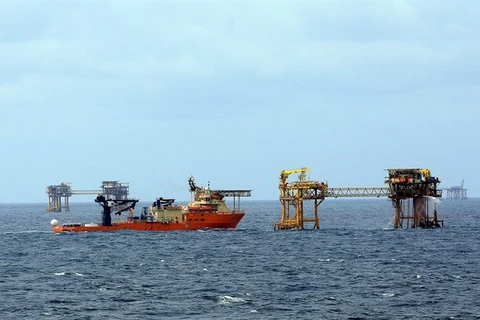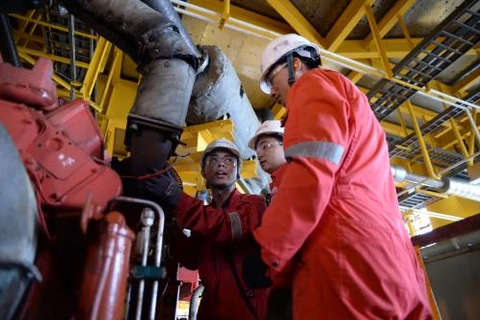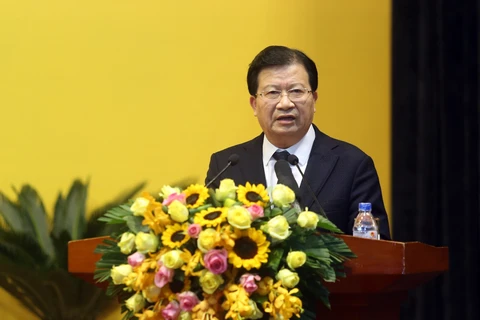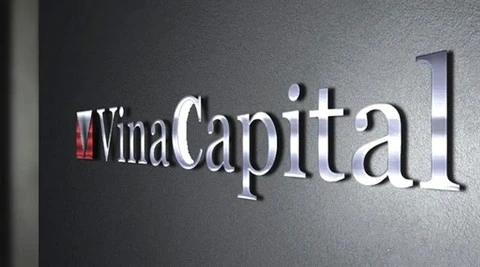 PetroVietnam plans to reduce its ownership of PetroVietnam Gas Joint Stock Company from the current 97 percent to 65 percent. (Photo: PetroVietnam)
PetroVietnam plans to reduce its ownership of PetroVietnam Gas Joint Stock Company from the current 97 percent to 65 percent. (Photo: PetroVietnam) Hanoi (VNA) – The Vietnam Oil and Gas Group (PetroVietnam) plans to reduce its ownership of PetroVietnam Gas Joint Stock Company (PV Gas) from the current 97 percent to 65 percent.
The divestment, scheduled for 2018-2020, follows the Government's instructions for the company to pare its stakes in three State-owned companies to a minimum of 51 percent by 2020, the other two being Petro Vietnam Fertiliser and Chemicals Corporation (DPM) and PetroVietnam Ca Mau Fertiliser Joint Stock Company (DCM).
The PV Gas divestment is expected to attract many large investors who would be eager to buy into a company that reportedly contribute 30 percent of PetroVietnam’s profits.
PetroVietnam, established in 1977, through its various companies including wholly-owned subsidiaries, now covers the entire gamut from oil and gas exploration and production to storage, processing, transportation, distribution, and services.
At an interaction with the media in late January, PV Gas chairman Le Nhu Linh said the divestment would be done very carefully to identify appropriate strategic shareholders.
A detailed plan would be submitted to PetroVietnam and then to the Government for approval, he said.
He expected the stake sale to not only be hugely profitable for the Government but also secure access to advanced technologies and modern management from strategic investors from the west, Japan and the Republic of Korea.
By 2019, PetroVietnam will also have to entirely divest its stake in PVI Holdings, Phuoc An Port Investment and Exploitation Oil and Gas JSC, Green Indochina Development JSC, SSG Real Estate JSC, PetroVietnam Trade Union Finance JSC, PetroVietnam Construction joint Stock Corporation, and PetroVietnam Maintenance and Repair JSC.
In the first quarter of this year PetroVietnam successfully equitised three of its companies, PetroVietnam Oil Corporation (PV Oil), Binh Son Refining and Petrochemical Co Ltd (BSR) and PetroVietnam Power Corporation (PV Power), reducing its ownership to below 50 percent.
The three companies made successful initial public offerings.
In fact, the BSR IPO netted the Government 60 percent more money than it had expected.
BSR had expected to sell 241.6 million shares, or 7.79 percent of its chartered capital, to the public at 14,600 VND per share (0.64 USD).
At this price, BSR would have been valued at almost 2 billion USD, making it the largest firm ever to hold an IPO.
A maximum of 49 percent is expected to be sold to strategic investors three months after the IPO, with PetroVietnam retaining 43 percent. Some 0.21 percent of the shares will be offered to the company’s employees.
But to return to the IPO, the Government earned 5.5 trillion VND (244.5 million USD) through the sale. The highest bid was 35,000 VND per share, the lowest was 14,600 VND per share and the average was 23,043 VND, 56 percent higher than the reserve price.
The auction saw 3,964 individuals and 115 organisations register to buy 652 million shares.
The Government raised 6.99 trillion VND (307.8 million USD) from selling 468.37 million shares of PV Power, or 20 percent of its chartered capital through an IPO on January 31.
The average price was 14,938 VND, with the highest and lowest successful bids being 28,000 VND (1.23 USD) and 14,500 VND (0.64 USD).
The company is now valued at 1.48 billion USD.
PV Power’s success came as no surprise because it has been reporting profitable operations year after year, and the offer price was thought to be attractive.
Established in 2007, the company operates one coal-fired thermal power plant, three gas-powered plants and three hydropower plants. Its annual output is more than 4,208 MW, or 10 percent of the country’s entire capacity.
Last year it reported net revenues of 31.5 trillion VND, an increase of 12 percent, and post-tax profit of 1.9 trillion VND, a 25 percent increase.
In PV Oil’s IPO on January 25 all 207 million shares, or 20 percent of its chartered capital, were snapped up for a total of 190 million USD. The average successful bid was 20,196 VND (0.89 USD) per share. The lowest was 19,200 VND, 5,800 VND higher than the reserve price.
Foreign investors only bought 68.47 million shares.
The Government has instructed PetroVietnam to retain its current ownership in some other subsidiaries and associate companies such as PetroVietnam Technical Services Corporation, the Vietnam Russia Joint Venture Vietsopetro and PetroVietnam Drilling and Well Services Corporation.
PetroVietnam owns respectively 51.4 percent, 51 percent and 50.4 percent stakes in them.
But despite all this, analysts said the PetroVietnam’s divestment and equitisation remain lower than expected due to several factors.
For one, its subsidiaries are too large for strategic shareholders.
For another, foreign investors expect transparent financial reports, which is lacking at many Vietnamese firms including oil companies.
Thus, for many, valuation is a difficult and slow process.
Oil companies have difficulty identifying the ideal management model after their IPO.-VNA
VNA























